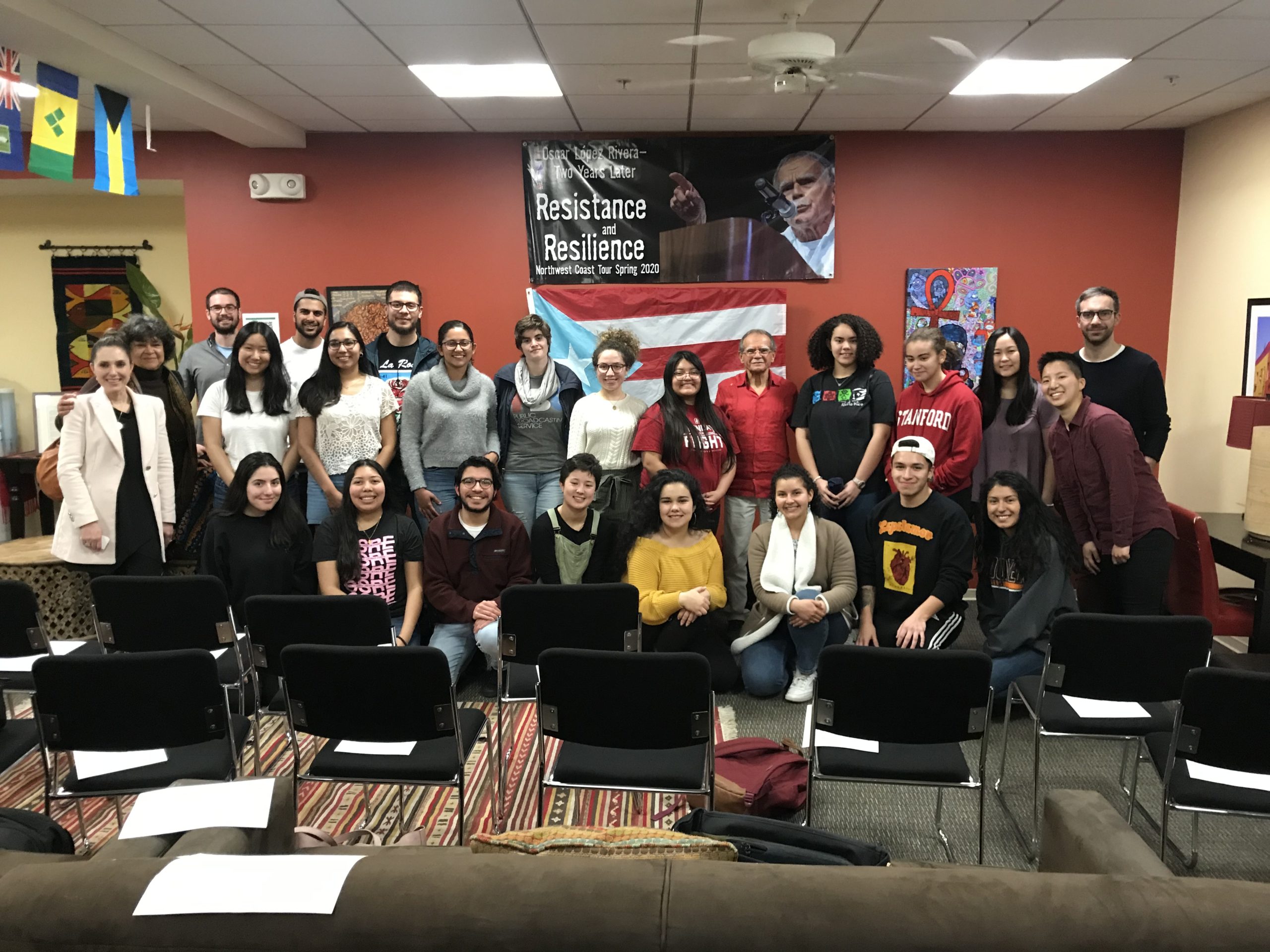Former Puerto Rican political prisoner Oscar Lopez Rivera argued for an independent, “decolonized” Puerto Rico at an event on Friday that also touched on his time in prison and the importance of solidarity in political activism.
Rivera was convicted of seditious conspiracy — a charge used for those plotting to overthrow the U.S. government — for his role in the Puerto Rican independence group F.A.L.N., which was responsible for about 100 bombings in the 1970s and 1980s. After Rivera had served 35 years of his 70-year sentence, President Obama commuted his sentence in 2017, a move that was greeted with celebrations from many Puerto Ricans.
“Hundreds of people visited [Rivera] over the years,” said Luis Alejandro Molina, a long-time friend and supporter of Rivera who introduced him at Friday’s event. “He was a good guy, and people would always ask what he was doing in prison.”
Rivera and the other Puerto Ricans who were arrested on April 4, 1980 had sentences “16 and a half times longer than others who were indicted and convicted of the same crimes,” Molina added.
Rivera, however, viewed going to prison as a challenge that would not change his goals for Puerto Rico.
“I promised myself that I would not give my time to the jail, the prison system or the jailers,” Rivera said. “I would keep myself busy no matter what.”
After being commuted, Rivera has resumed his community organizing efforts and continues to speak out against colonization, which he calls “dehumanizing and destructive.”
“In a colony, there is no such thing as human rights, and Puerto Ricans have never had the opportunity to enjoy the basic human rights that all humans should be able to enjoy,” he said.
Rivera’s vision for an independent Puerto Rico includes protecting its schools, setting its maritime boundary to include a 12-mile ocean radius and developing an ecotourism system.
“In Puerto Rico, we have plenty of sun, and we are working hard with solar energy,” Rivera said. “If we develop an ecotourism project for all of Puerto Rico, we can let people enjoy the beautiful parts of Puerto Rico.”
Although he acknowledges that these are difficult goals, Rivera stated that he is working towards them with “a lot of love,” especially through the solidarity of Puerto Ricans in the diaspora with Puerto Ricans in Puerto Rico.
“We are also trying to create solidarity with other movements in the United States that are seeking better conditions under their government,” he said. “I think that we deserve a better, more just world.”
Joanne Tien, the Haas Center’s Senior Program Director of Engaged Scholarship and an organizer of the event, expressed satisfaction with the event’s turnout, as the entire room was filled with attendees.
“Students are clearly excited to learn more about abolition and decolonization particularly in the context of Puerto Rico,” Tien said. “Students expressed so much gratitude for the speaker.”
Contact Camryn Pak at cpak23 ‘at’ stanford.edu.
